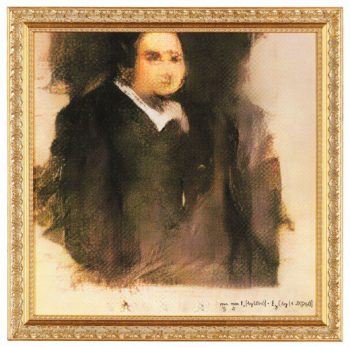Sean Kelly in MIT Technology Review:
 Advances in artificial intelligence have led many to speculate that human beings will soon be replaced by machines in every domain, including that of creativity. Ray Kurzweil, a futurist, predicts that by 2029 we will have produced an AI that can pass for an average educated human being. Nick Bostrom, an Oxford philosopher, is more circumspect. He does not give a date but suggests that philosophers and mathematicians defer work on fundamental questions to “superintelligent” successors, which he defines as having “intellect that greatly exceeds the cognitive performance of humans in virtually all domains of interest.”
Advances in artificial intelligence have led many to speculate that human beings will soon be replaced by machines in every domain, including that of creativity. Ray Kurzweil, a futurist, predicts that by 2029 we will have produced an AI that can pass for an average educated human being. Nick Bostrom, an Oxford philosopher, is more circumspect. He does not give a date but suggests that philosophers and mathematicians defer work on fundamental questions to “superintelligent” successors, which he defines as having “intellect that greatly exceeds the cognitive performance of humans in virtually all domains of interest.”
Both believe that once human-level intelligence is produced in machines, there will be a burst of progress—what Kurzweil calls the “singularity” and Bostrom an “intelligence explosion”—in which machines will very quickly supersede us by massive measures in every domain. This will occur, they argue, because superhuman achievement is the same as ordinary human achievement except that all the relevant computations are performed much more quickly, in what Bostrom dubs “speed superintelligence.”
So what about the highest level of human achievement—creative innovation? Are our most creative artists and thinkers about to be massively surpassed by machines?
No.
Human creative achievement, because of the way it is socially embedded, will not succumb to advances in artificial intelligence. To say otherwise is to misunderstand both what human beings are and what our creativity amounts to.
More here.
